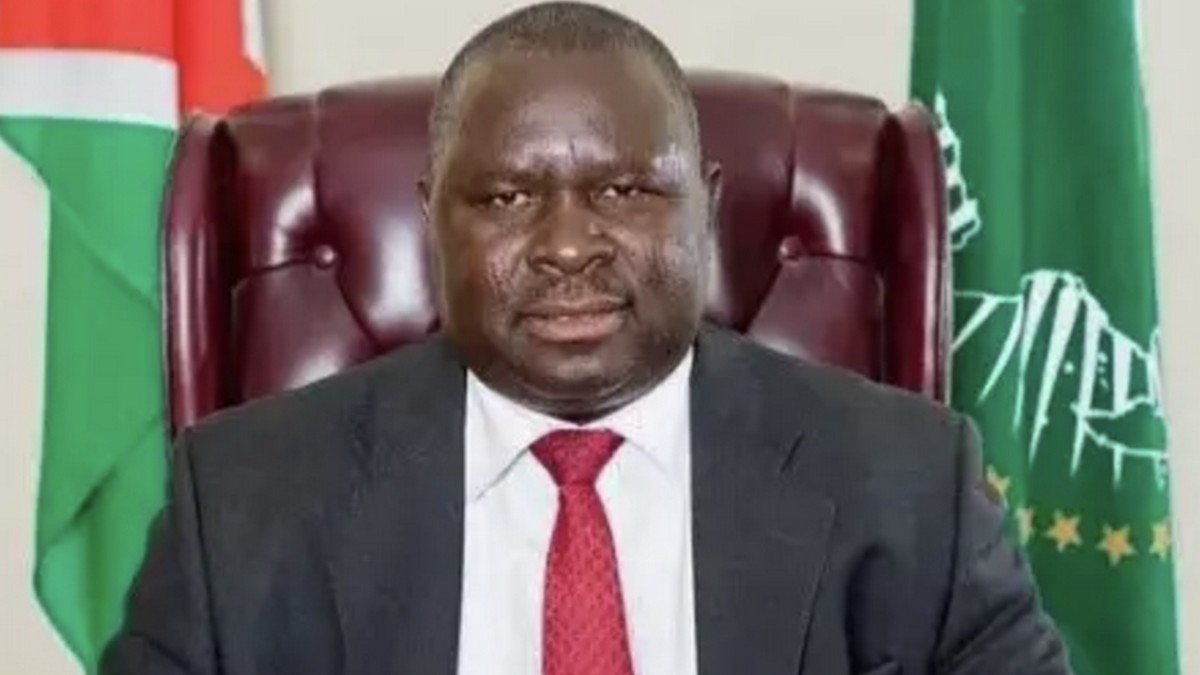The name Adolf Hitler is reviled the world over for good reason.
The German dictator and head of the Nazi Party killed millions of people, including Jews, through the Holocaust, and plunged nations across the world into a catastrophic war that it took decades to recover from.
However, a Namibian politician with the same name, Adolf Hitler Uunona, is now set to win re-election on 26 November (Wednesday).
But what do we know about Adolf Hitler Uunona?
Let’s take a closer look:
All about Adolf
Adolf was born in December 1965, in what was then South West Africa.
Adolf, 59, belongs to Namibia’s ruling centre-left South West Africa People’s Organisation (Swapo). The party, which has ruled Namibia since its independence, has campaigned against colonial and white-minority rule.
Adolf serves the Ompundja constituency, which is in Namibia’s Oshana region in the north. The small constituency is home to fewer than 3,000 voters. Adolf is set to win his fourth term in this seat, which he also previously won in 2020, 2015 and 2004.
Adolf has garnered much of the support from the community and is known as a vociferous voice against apartheid, for engaging with the grassroots and focusing on development.
Adolf said his father probably named him after the German leader. He, however, added that he did not understand the significance of the name. He “probably didn’t understand what Adolf Hitler stood for. As a child, I saw it as a totally normal name.”
Adolf previously won the Ompundja constituency in 2020 with 85 per cent of the vote, with 1,196 ballots to his opponent’s mere 213.
“My father gave me this name Adolf Hitler, but it does not mean I have Adolf Hitler’s character or resemble that of Adolf Hitler of Germany,” Uunona told The Namibian at the time. “Hitler was a controversial person who captured and killed people across the globe. I am not like him.”
Adolf also spoke of how he was unaware of the significance of the name growing up.
“It wasn’t until I was growing up that I realised: This man wanted to subjugate the whole world,” Adolf told the BBC. Adolf has distanced himself from the man he was named after and from Nazi ideology. “It wasn’t until I was growing up that I realised: This man wanted to subjugate the whole world. I have nothing to do with any of these things,” he said.
Adolf said he has no plans to change his name. He pointed out that his wife calls him Adolf and that he goes by the name in public and on official documents. He says it is “too late” to do anything about it. “The fact I have this name does not mean I want to conquer Oshana. It doesn’t mean I’m striving for world domination.”
The Namibian–German connection
It must be pointed out here that Namibia was a former German colony between 1884 and 1915 called German South West Africa. During this time, Germany left its cultural imprint on the nation, including churches, languages and the government.
The German Empire killed thousands of people during a revolt between 1904 and 1908 by local Nama, Herero and San people – what some historians have dubbed “the forgotten genocide”. Around 70,000 people were said to have been killed during this revolt carried out under Kaiser Wilhelm II.
Namibia, after being a German colony, was then ruled by South Africa. It only gained independence in 1990. Namibia still has several German-named towns and a small German-speaking contingent, which makes it no surprise that German names are not uncommon in the country.
According to reports, some Nazis fled to Namibia after the death of Hitler. A 1976 New York Times article claimed that German-Namibians continued to greet each other with the words “Heil Hitler.”
However, it seems that many of those who adopted such names had little understanding of the context and wider significance. The name once again highlights the lingering impact and legacy of colonialism in Africa.
Since Germany recognised the genocide in 2021, Namibia has been pushing for reparations. It previously rejected an offer by Germany for $12 million as recompense. The Swapo party, which has been in charge of Namibia since independence, has faltered recently over bribery allegations involving the fishing industry. In the previous national elections, it lost control of over two dozen towns and cities. However, in Ompundja, Adolf remains in charge.
With inputs from agencies.
)